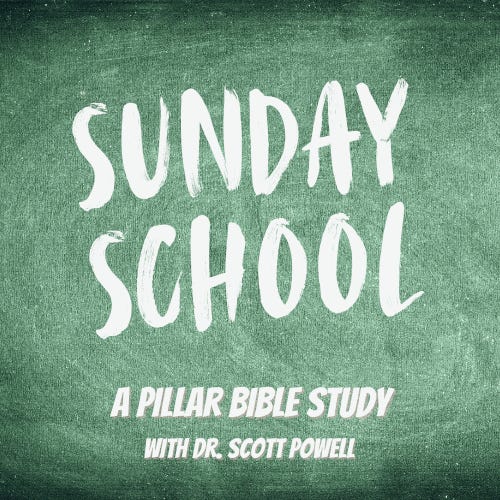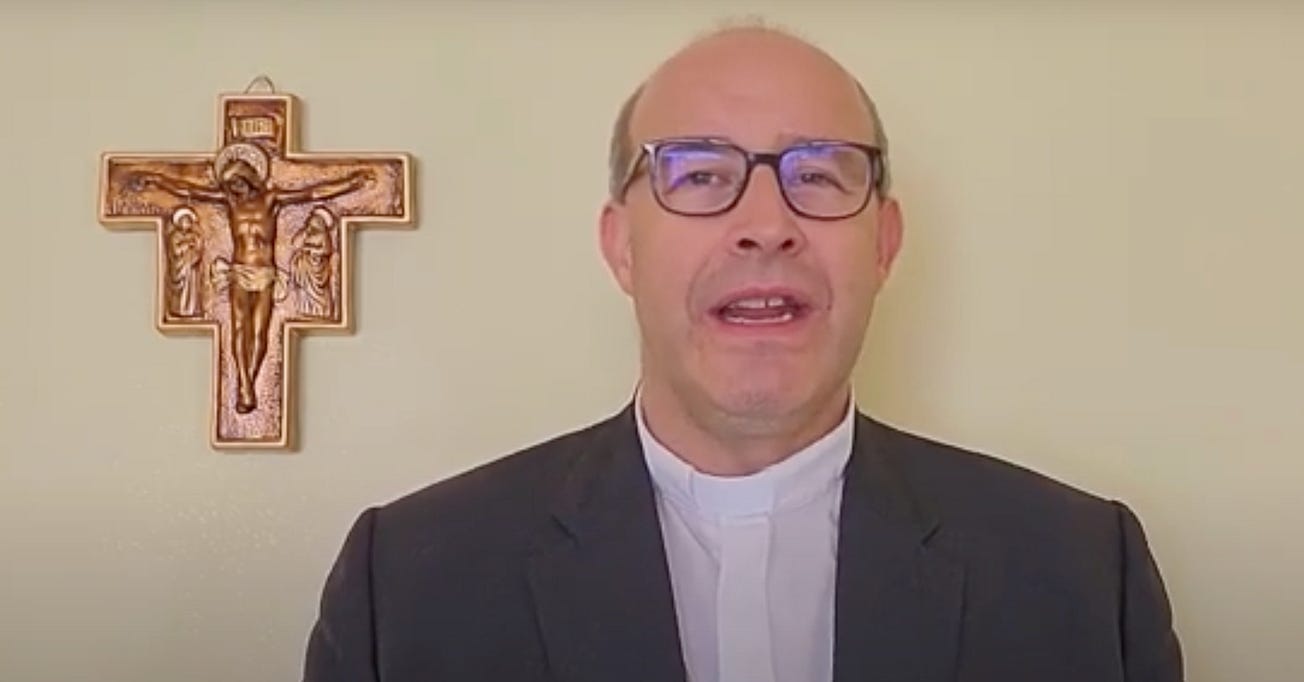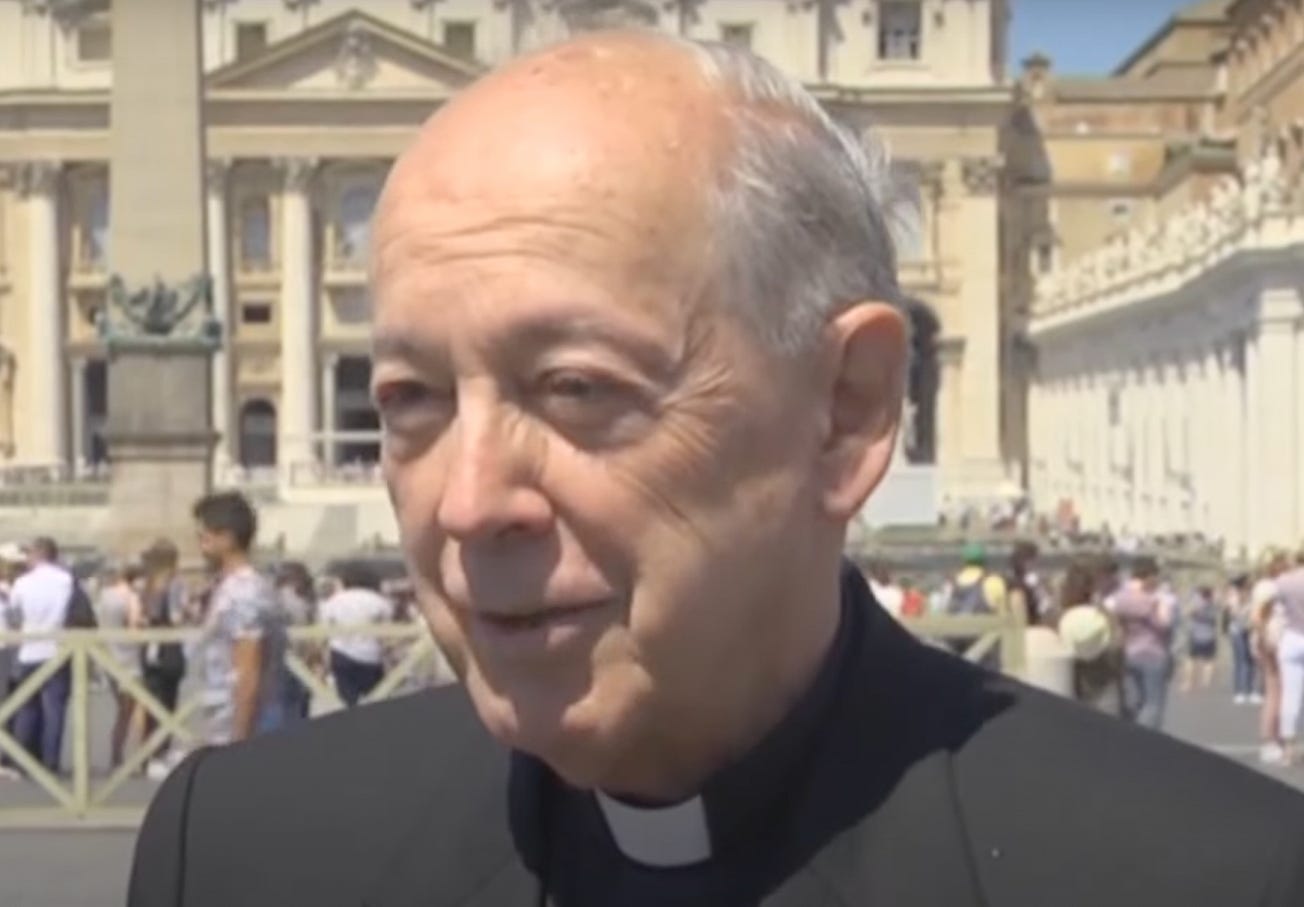Pillar subscribers can listen to Ed read this Pillar Post here: The Pillar TL;DR
Happy Friday friends,
Pope Francis is feeling better, so we are told by the Vatican press office.
That is good news, obviously. I wrote here last week about the need and right of the pope for some measure of privacy and dignity as he wrestles with his mortality, and our obligation to pray for him.
I am grateful the prayers of so many have been answered with what seems to be real, if guarded, progress in his recovery since then.
But between then and now there have been some hard moments. And indeed there have been occasions in the last week when the pope was in acute medical distress, or even premature rumors about his imminent demise appeared to “go viral.”
When that happened, my phone tended to light up with people asking if it was all true, what was I hearing, could there be a big “scoop” in the offing etc.
Again, many Catholics are deeply invested in the health and life of the Bishop of Rome — that is perfectly natural.
But, whenever Pope Francis does die, as we all someday must, I won’t be treating the event as a rush to break the news.
The Church has a solemn and regulated mechanism for publicly announcing the death of a pope, informing first the clergy and people of his diocese, and then the diplomatic corps and the rest of the world. It is a formal event, to be officially certified in the papal chapel, not in a hospital room.
I don’t think any of this is a hollow or silly formality. And, absent some critical and pressing issue of papal governance being in flux at the exact moment of his earthly departure, I don’t think it is apt for get-there-first-with-the-BREAKING-all caps-tweet.
Frankly, I’d feel about the same ghoulishly splashing a “confirmed rumor” about Francis’ death before the formal announcements as I would publishing news of the demise of someone before their family could be informed.
Some things, including and especially death, merit being treated with solemnity, calm, dignity.
Whenever a papal interregnum comes, there will be a lot to do, a lot to report, and a lot to explain. Those will all come with their own frantic senses of urgency. But I hope we can temper that frenetic temptation from the outset by remembering that we are not just talking about the transition of an office, we’re talking about a soul.
Here’s the news.
The News
The State Department canceled a contract with the U.S. Conference of Catholic Bishops on Thursday, likely bringing to a halt a nationwide effort organized by the USCCB to provide resettlement services for refugees to the United States.
The cancellation leaves uncertain the status of a USCCB lawsuit aiming to recoup millions in back payments for resettlement services, with the federal government telling a judge that the USCCB should seek payment through “available administrative channels” outside the lawsuit.
—
An Austrian diocese announced Wednesday the appointment of the first “episcopal vicaress” in the country — if not the Church.
The Diocese of Gurk-Klagenfurt said Feb. 26 that Marketz had named pastoral theologian Barbara Velik-Frank to the new diocesan office of “episcopal vicaress for synodality and Church development,” beginning March 1.
It’s the most recent in a series of novelty appointments (canonically speaking) to come out of European dioceses.
—
Violence continues in the Democratic Republic of the Congo, with the robbery of a Catholic bishop, and reports that more than 70 bodies were discovered inside a Protestant church in the country.
What is happening in the DRC is one of those stories which it is all too easy, and too tempting to look away from. We simply cannot.
Read the whole thing, and please pray for the people there.
—
Recently published guidance from the Vatican’s Dicastery for Legislative Texts says that canon law prohibits bishops from publishing lists denoting clerics “credibly accused” of sexual abuse crimes.
The guidance, from the Vatican office charged with authoritatively interpreting canon law laid out in a letter signed by its prefect and secretary that practice of posting lists of “credibly accused” clergy — including and especially those who are dead — is “illegitimate” since such “credible” accusations actually “require a relatively low standard of proof,” and are determined to be such “without the benefit of any exercise of the right to defense” for the accused.
The legislative dicastery is just the most recent of a long list of Vatican authorities, including the pope personally, to condemn the practice which remains widespread across American dioceses.
—
Pope Francis has created a commission for promoting donations to the Holy See shortly before his hospitalization, the Vatican announced Wednesday.
Formally known as the Commissio de donationibus pro Sancta Sede, or Commission of Donations for the Holy See, the body has the “specific task” of “encouraging donations with special campaigns among the faithful, bishops’ conferences, and other potential benefactors, emphasizing their importance for the mission and for the charitable works of the Apostolic See.”
All I will say is good luck to them, time is short and the needs are great.
—
A Scottish bishop announced Sunday that members of traditionalist religious communities present in his diocese since 2022 will return to the English diocese in which the orders were established.
One of the religious communities has said it is being pushed out of the diocese, and that its members will be left “homeless” by the bishop’s decision, and the situation points to global tensions between religious communities using older liturgical books and the dioceses in which they exercise ministry.
Catch up on the whole story here.
—
The Vatican announced on Tuesday the canonization of Blessed José Gregorio Hernández. The man known as “the doctor of the poor” is now set to become the first Venezuelan saint.
Although he is a household name in Venezuela, he’s less well known — if at all — to Catholics in many other parts of the world. But he should be.
Vulgar money
I read with interest this week about the creation by Pope Francis of a commission for promoting donations to the Holy See.
Last year, as the Vatican’s liquidity crisis visibly deepened, I pointed out that, while cost cutting measures — and there have been many of them over the last decade — are fine, the Vatican needed to focus on bringing more in money as much or more as staunching spending.
Pope Francis has done real work in creating offices to oversee who is spending the cash and how, and even more regulations to govern it all.
But, I noted in a previous edition of this newsletter, no one is in charge of making the Vatican money — there is no Vatican chief revenue officer, or pontifical fundraising czar. And if no one is in charge of bringing money in, is it any wonder if the money isn’t arriving?
Now we have a committee dedicated to doing just that.
The move is, to be sure, a step in the right direction. But it is a single step on a long hard climb to solvency for the Vatican, and I hope we shall see it followed up with some ambitious strides in the near future, because time is running out.
The Vatican’s pension fund has an unfunded liability of more than 600 million euros, and that is just what the fund managers are willing to admit — previous, more independent assessments have put it over 900 million.
By anyone’s reckoning, the Vatican’s annual operating deficit is closer to 100 million than 50 million euros.
According to its most recent published accounts, voluntary donations to Peter’s Pence are slowly ticking up, but total fund revenue halved year-on-year.
Long term, the only sustainable option for the Holy See is economic self-sufficiency — or something close to it. And to be clear, the Vatican has the assets to make that a reality — particularly if someone got a grip on the global property portfolio and made it properly profitable.
But that would involve the kind of long-lead redevelopment projects with external partners that take years to come online, assuming anyone in the Vatican had the inclination and authority to see them through.
To even give them a shot at happening, short-term crisis fundraising is needed to bridge the gap and staunch the bleeding, and I suppose that is what this new papal committee is for.
I wish the committee members well, though I wonder how big they will be allowed to think in their mission to “encourage donations with special campaigns among the faithful, bishops’ conferences, and other potential benefactors.”
It’s all well and good to, as the Vatican announcement put it, “emphasize their importance for the mission and for the charitable works of the Apostolic See.”
But where is the emphasis going to go? If the committee just becomes a kind of second Peter’s Pence, pitching charitable projects while trying to secure donations to cover Vatican operating costs, I don’t see that working terribly well.
Instead, I hope they are willing to think outside the box and start pitching specific Vatican departmental budgets as “special projects” to be fundraised for. I’ve said before and I think it bears repeating: the vast majority of Vatican dicasteries, including those for faith, laity, religious life, liturgy, and saints run on less than 4 million a year each.
Considering the size of the universal Church and the dicasteries’ workload, that’s actually extraordinary value for money being delivered, in large part, by some seriously overworked curial staffers. That’s a pitch to potential donors worth making. Though, I think, for many people involved it will require a radical change in how they think about the Vatican’s daily work and the relative indignity of having to show its worth or ask for support.
If the goal is big money campaigns now — to buy time for sustainable revenue development to come on line later — I hope the new committee will consider ideas which most people might have previously considered to be too vulgar to entertain. Renting out the naming rights for sponsorship for the Vatican museums, for example, which could potentially bring in tens, if not hundreds of millions.
It’s an ugly financial reality the Vatican is facing, but I hope that officials are finally willing to look facts in the face and do something about it — and that it isn’t all coming too late.
Breakfast vibes
Five-thirty in the morning is a fine time for a curry to round off a night’s excess. But 0530 is no hour, at all, for breakfast.
It’s an hour for prayer, I grant you. But in the stillness of the grey half-light, when monastics gather in quiet, candlelit chapels to pray for the safety of the many souls asleep, and salvation of the wandering few abroad at an ungodly time.
To rise before dawn for “business attire” and speeches under stage lighting and over eggs is too earnest, too thrusting, too up-and-at-’em and in-your-face for decent Catholic folk. It’s downright Protestant.
Nevertheless, 5.30 a.m. is when registration opened this morning for the National Catholic Prayer Breakfast here in Washington, D.C., and there I found myself, compelled by the Secret Service and my own disordered sense of propriety to arrive at the stated time.
Serving sausage on a Friday morning to several hundred conservative Catholics is an amusing test of who is fully awake, but where did they get the eggs for that many people in this economy?
The NCPB is one of those events to which people come for different reasons all of their own. I’d been only once before, because my then-employer considered my resentful arse to be of more value parked as chair meat on a corporate table at the back than at my desk doing my job. For these and other reasons, I don’t work there anymore.
This morning I came willingly, the invited guest of friends for whom I’d rather rise early than refuse — men from a part of the country where to be up at that time means to have slept on a saddle and where indifferent coffee usually has the dignity of being brewed over an open fire.
Others came to be seen. Off to the back of the hanger-sized hall stood a runway of stalls and booths, laying out the wares and whys of various Catholic institutions, and the Heritage Foundation, with badges of tribal affiliation decorating lapels like the campaign medals of a dozen subculture wars.
Most came to see, of course, and to see especially Mr. Vice President Vance.
There also present to see him were a smattering of bishops, who hovered before the start as potentially portentous as Banquo’s ghost, given they are currently suing the guest of honor’s administration for stiffing them a few tens of millions of dollars.
In the end, they all appeared content to ignore for the morning their collective grievances and enjoy the atmosphere.
Even the nuncio seemed happy to be there, the pope’s recent Twitter spat with Vance over mass deportations notwithstanding.
He offered the invocation with consummate diplomacy, noting the Holy Father’s love and closeness to all present and “the infinite and transcendent dignity of every human person,” presumably even Americans, and forbearing to mention synodality even once.
This was an hour for good feelings and gently confected drama.
The halls bubbled with anticipation. A reading from St. Paul was proclaimed over the sound system in stentorian tones, backed by Aaron Copland’s “Fanfare for the Common Man.”
Older middle-aged men slapped handshakes and bro hugs in the snaking security line, while young men in tan shoes hovered erect over their phones, trying to remember how people stood in “House of Cards.”
Mr. Vance does attract enthusiasm. Living one congested aortic valve away from the leadership of the free world will do that for you. He arrived on stage at the more executive hour of 8:20 to a whooping ovation.
Being vice president is mostly a gig of “moods and vibes,” as the kids say. His job is to get out and among the people, be they heads of European governments or the pillars of American Catholicism, and set the tone of things.
He’s a good speaker. And his schtick for the room was solid, playing by turns the unassuming new convert and assertive man of faith.
At 40 years old, with his trousers a cough too tight and whisper too short, Midwestern tones, and knowingly gentle jokes about Dominicans vs Jesuits, he came across as a well-liked but almost-too-old-for-it LifeTeen leader.
In another world, he might have gone to Steubenville.
In keeping with his “moods and vibes” mission, his themes were broad: peace, freedom, life, but his tone was frank.
“You’re certainly not always going to agree with everything we do,” he admitted, but everyone would like some of what they were going to do, he promised, along with an open door for sincere disagreement.
And there’s a bit of that around.
“The bishops sometimes don’t like what I say,” he conceded, “including the Holy Father.”
But, the VP reassured us, he’s a man of the digital age, savvy enough not to confuse spiritual leaders for social media influencers nor respond to them as if they were such.
Instead, he closed with a lengthy quote from a Pope Francis pandemic homily, calling him a great pastor and leading the room in prayer for his health — whether it was the warmest of gestures or the coldest of trolls, it was professional class either way.
The applause, when it came, was sincere indeed, even from those who’d clapped for the welcoming of Syrian and Iraqi refugees a few speakers earlier.
Political prophets are always welcome among their own tribes — any lapses of orthodoxy, however grave, are reduced to venial status by the indulgence obtained through the pious work of winning elections.
Winners, after all, are compelling, and the frisson of power is real enough when you get up close. You could see it reflected in the fortunate faces seated close enough to glimpse up at the vice presidential nostril hair.
Cooler analysis might wonder how much progress, in legal and policy terms, will really be won for Catholic causes through demi executive support — and at what other costs along the way.
But the National Catholic Prayer Breakfast is no time or place for serious conversations or awkward truths. Especially since the waiting staff refuse to bring you bloody marys, even for cash money.
It’s a time for “business attire,” but not actual business; it’s for friends, to see and be seen, to stir the Splenda of political stardust into the coffee and just roll with it.
After Vance left, and as the tide ebbed out of the hall, the people floated towards K Street with their mood buoyed by their breakfast and the sense that they were all winners, too, somehow.
That was the vibe, anyway.
See you next week,
Ed. Condon
Editor
The Pillar





